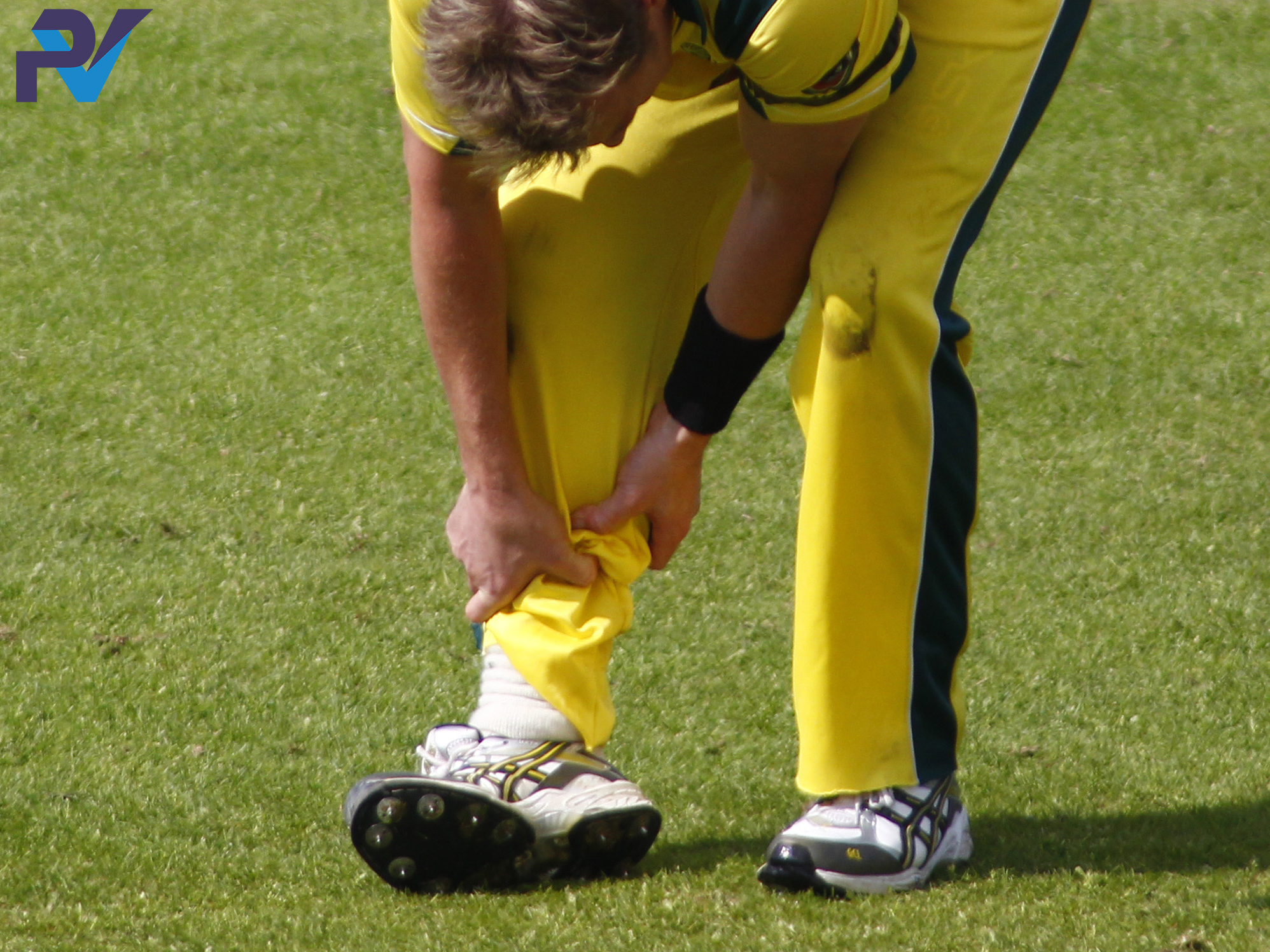Get Fit to Play Cricket without Getting Injured
 If you are reluctant to do fitness training to improve your cricket because you are afraid of getting injured then this is the article for you.
If you are reluctant to do fitness training to improve your cricket because you are afraid of getting injured then this is the article for you.
I'm here to tell you that there is a very real injury risk in fitness training. I'm also here to tell you how you can reduce that risk to virtually zero while still getting all the benefits. It's not about if you should train - that's unquestionable - it's all about how you train.
A typical fitness setup for cricketers
I have been at high performance cricket training sessions where coaches have decided, rightly, that fitness is crucial. They will do anything from 20-60 minutes of work without bat or ball and with lots of running.
There are press ups, planks, lunges and squats. There are sprints until your lungs are on fire and you barely get a minutes rest before setting off again. Everyone ends up on the floor with exhaustion. The next day you are hopelessly sore. But, y'know, it's the good kind of sore that makes you feel like you are getting fit, even though you can barely walk.
Round here, we call it a "beasting".
The problem with beasting cricketers
I love the principles of improving fitness, but beastings concern me.
And it's not just me. I've spoken to several professional strength and conditioning coaches who all agree that there are problems with pushing people to their physical limits. Here's a few reasons to take pause,
- Intense training causes fatigue that reduces core stability, coordination and power.
- Pushing a group of players at the same rate encourages less fit players to over-reach their capabilities and get hurt.
- Additionally, in group situations coaches cannot take the time to coach proper technique in movements, leading to injuries
- There is no evidence intense training improves cricket mental toughness.
- Sessions tend to be led by coaches rather than S&C experts. As a result, there are gaps in the design of the sessions that lead to weaknesses in areas like core strength, ankle and hip mobility and shoulder stability.
- Regular intense exercise that is either infrequent or too frequent leads to low level chronic pain. Think of a sore back, shoulder or Achilles' heel that is not exactly an injury but will lead to one if you try and train through it.
Rethink your fitness training
You might think this is a good reason to forget about fitness and get on with some more batting and bowling at your sessions.
Or maybe you assume that as long as you do a bit of "prehab" with a theraband and some glute bridges you will be sorted.
You would think wrong.
While fitness training is not as simple as "train as hard as you can until you are beasted", or "do some fancy little core and shoulder exercises" it can be very simple. You don't need a S&C guy or girl to guide you if you stick to the basics.
Once you are training, make sure you incorporate the following elements:
- Ankle, hip and upper back mobility
- Knee, glute, core and shoulder stability (you could call these prehab if you want, but I prefer not to use the word, it's ugly)
- Speed and power
- Endurance
If you are mindful about what you are working on, you need to do a lot less than you think.
There will be times where "beasting" is appropriate. When you are satisfied with your fitness and you know the signs of fatigue you can have the strength of mind to stop the session when its effective (rather than when you are in the zone for injury risk).
There will be other times where you feel you have not done enough. A few stretches and med ball throws leave you with plenty in the endurance tank, but that's OK, you're not working on endurance. You're working on being faster and more mobile.
The key to god fitness training is perspective. If you assume "fitness" is training past fatigue and you can't get fit unless you are beasted, you are taking a big risk. If you use the time to develop more specific things you will get better, and be less likely to get hurt.
How does your fitness training look at the moment? I'd love to hear about what you are doing and how you are doing it. Leave a comment and let us know.
- Login to post comments


Comments
I am 12 and slightly overweight. I have tried doing some of the body weight routines provided on pitch vision, but found that i didn't have enough time to do the full routine 3 times per week. Could u please give me a 15 minute fitness routine that I can do mid season.
Thanks, Luke.